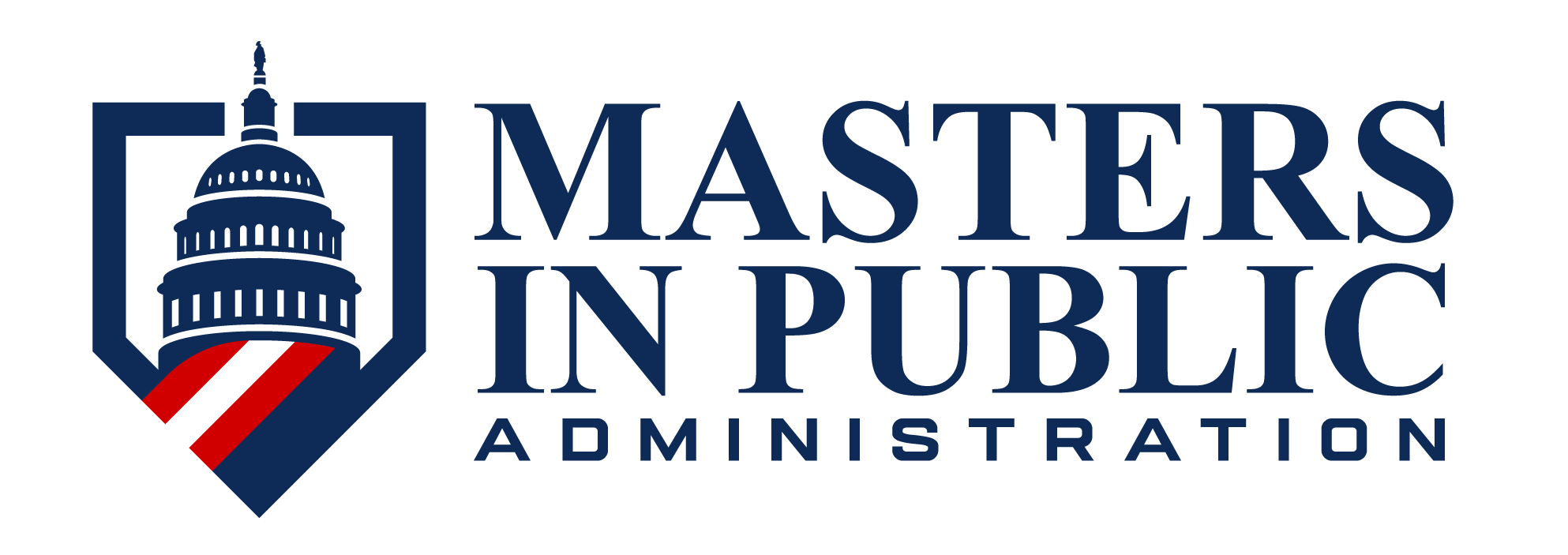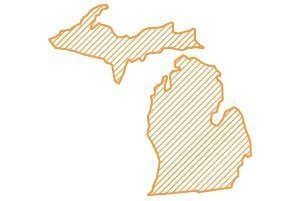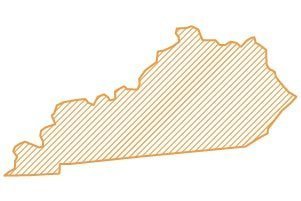Introduction
Being a Public Administration graduate student in the state of Ohio offers a unique blend of academic excellence, diverse institutions, and ample opportunities for personal and professional growth. Ohio boasts renowned schools for public administration, such as the John Glenn College of Public Affairs at Ohio State University and the Maxine Goodman Levin College of Urban Affairs at Cleveland State University. Outside of class, students can immerse themselves in the state’s natural beauty, enjoying activities like hiking around the picturesque lakes and exploring the scenic landscapes.
Networking opportunities are abundant, especially in cities like Cleveland and the state capital, Columbus. These urban hubs provide access to a robust professional community where students can connect with government officials, policymakers, and public administration professionals. On the other hand, exploring opportunities in more rural areas allows students to understand the dynamics of local governance and community development. Cleveland, with its vibrant city life, offers unique job prospects in areas like urban planning and economic development. Meanwhile, the state capital, Columbus, provides a hub for policy analysis and government administration.
Cleveland stands out from an urban planning perspective due to its revitalization efforts and innovative approaches to sustainable development. The city has undergone a remarkable transformation, with initiatives aimed at reinvigorating neighborhoods, enhancing public spaces, and fostering economic growth. One notable project is the Cleveland Public Square redesign, which transformed the city’s central square into a vibrant, pedestrian-friendly space, promoting community engagement and cultural events.
The emphasis on brownfield redevelopment is another distinctive feature of Cleveland’s urban planning. The city has successfully repurposed former industrial sites, breathing new life into these areas and contributing to the overall economic and environmental sustainability. The Flats East Bank redevelopment is a prime example, showcasing how abandoned industrial spaces can be transformed into mixed-use developments, including residential, commercial, and recreational spaces.
Beyond academics, Ohio provides various recreational activities, from enjoying the shores of Lake Erie to exploring the Appalachian foothills. This diversity caters to different preferences, ensuring a well-rounded student experience. Ohio’s rich tapestry of local governments further enhances the learning experience, allowing students to witness and engage with the intricacies of community governance. Whether one is drawn to the vibrant urban settings or the serene rural landscapes, being a Public Administration graduate student in Ohio presents a dynamic and comprehensive educational journey.
ADVERTISEMENT
American University
Online Master’s in Public Administration and Policy
American University’s nationally recognized and NASPAA-accredited master’s in public administration provides students with a master’s-level understanding of modern governance from an award-winning faculty working and teaching in the heart of government, Washington, D.C.
Ohio University
Online & Hybrid Master of Public Administration Degrees
Ohio University’s MPA programs equip graduates for leadership roles in government, nonprofit organizations, and the public sector. Concentrations include:
Walden University
Online Public Policy and Administration Programs
Walden University’s Public Administration programs are taught by a distinguished faculty of scholar-practitioners, many of whom have senior-executive experience in government and public service. Programs include:
Arizona State University
Online Master of Public Administration (MPA)
ASU’s Online Master of Public Administration provides students with a curriculum that covers leadership strategies, ethical decision-making, and effective management across various organizations.
Liberty University
Online Master of Public Administration (MPA)
Liberty University’s Master’s Degree in Public Administration Online is designed to equip students with a thorough background in the theories and practices essential for success in government and nonprofit roles. MPA areas of focus include:
Southern New Hampshire University
Online Public Administration & Political Science Degrees
Stand up and be counted with a degree in public administration/political science from Southern New Hampshire University—and learn how to facilitate change from within the system. Program offerings include:
MPA Programs in Ohio
Choosing to pursue a Master of Public Administration (MPA) degree in Ohio provides students with a unique and enriching educational experience for several compelling reasons. The state is home to renowned programs such as the John Glenn College of Public Affairs at Ohio State University and the Maxine Goodman Levin College of Urban Affairs at Cleveland State University, offering diverse specializations within public administration.
Ohio’s dedication to innovation and sustainability, particularly evident in its urban planning initiatives, further enhances the MPA experience, allowing students to engage with cutting-edge projects and contribute to the state’s commitment to addressing contemporary challenges through effective public administration leadership. In essence, pursuing an MPA degree in Ohio offers a comprehensive and impactful educational journey, combining academic excellence, practical experience, networking opportunities, and a supportive environment for future public administration leaders.
The state is home to 9 public and private educational institutions that offer Master’s programs in Public Administration. A detailed overview of these programs, covering factors like accreditation, study modes, and costs, is available for reference here:
NASPAA-accredited MPA Programs
In the state of Ohio, the assessment and accreditation of programs such as the Master of Public Administration (MPA) and Master of Public Policy (MPP) are overseen by the Network of Schools of Public Policy, Affairs, and Administration (NASPAA), a globally recognized accrediting organization. This accreditation procedure is designed to guarantee the attainment of the highest standards in public administration education, encompassing a thorough evaluation of curriculum, faculty qualifications, and program outcomes.
Currently, six educational institutions in Ohio have obtained NASPAA accreditation for their MPA programs, underscoring their firm dedication to maintaining excellence and aligning with industry standards. This accreditation stands as concrete evidence of their commitment to delivering quality education. For prospective students, NASPAA accreditation serves as a dependable indicator of a program’s significance, providing a solid groundwork for a successful career in public administration.
Outlined below is an overview of the six NASPAA-accredited institutions in Ohio, along with estimated tuition costs calculated on a per-credit-hour basis:
Bowling Green State University
- Bowling Green, OH
- Campus
Modality: On-Campus
Credit Hours: 36
GRE: Contingent on GPA
Resident Tuition: $536
Non-Resident Tuition: $868
Program Overview:
The program’s rigorous curriculum at Bowling Green State includes coursework, research, and experiential learning through public service and client-based projects. Students engage in hands-on projects for local clients, fostering practical skills. The MPA faculty, recognized for teaching and research excellence, ensures a unique blend of theory and practice, preparing students for the complexities of public administration. Graduates find employment across various sectors, including government, international organizations, academia, and the private sector. The MPA Student Association provides valuable professional and social opportunities. The degree can be completed full-time in 1.5-2 years, with part-time options available in the evenings, and is open to applicants from all majors with no prerequisites.
Cleveland State University
- Cleveland, OH
- Campus
Modality: On-Campus
Credit Hours: 42
GRE: Contingent on GPA
Resident Tuition: $602
Non-Resident Tuition: $1,030
Program Overview:
The Master of Public Administration (MPA) program at Cleveland State University emphasizes the blurred division between the public and private sectors, recognizing the need for professionals with MPA degrees who can navigate laws, regulations, tax policies, contracts, and more in both sectors. The program is committed to nationally recognized excellence in public administration education and research, supporting the missions of the Levin School and Cleveland State University. The core curriculum covers political and legal institutions, economic and social systems, organizational and managerial skills, financial administration, analysis techniques, and human resources management in the public sector. Graduates are equipped for diverse career opportunities in government, nonprofit, and public service organizations, aligning with the growing demand for professionals in social and community service careers.
Kent State University
- Kent, OH
- Online + Campus
Modality: Online/On-Campus
Credit Hours: 36
GRE: Contingent on GPA
Resident Tuition: $10,416 (per year)
Non-Resident Tuition: $19,887 (per year)
Program Overview:
Kent State University’s online Master of Public Administration (MPA) program is designed for individuals seeking a career in public service with a focus on making a positive impact on their community. This NASPAA-accredited program, offered by the Political Science Department, equips students with the knowledge and skills necessary for senior management positions in local, state, and regional governments, as well as nonprofit organizations. The MPA curriculum covers non-profit administration, ethics in public administration, and policy-specific topics such as immigration, education, health care, and child care. The program provides a rigorous and supportive learning environment, and faculty mentorship includes guidance through internships and policy evaluation work, preparing students for successful careers.
Ohio State University
- Columbus, OH
- Campus
Modality: On-Campus
Credit Hours: 52
GRE: Not required
Resident Tuition: $12,092 (per year)
Non-Resident Tuition: $38,693 (per year)
Program Overview:
This accredited, in-person master’s degree program has specific requirements, mandating the majority of coursework to be completed in-person, allowing a maximum of one core or elective course online per term, with online availability not guaranteed. To prepare for the program, students are expected to have a grasp of basic statistics and economics concepts, along with knowledge about the U.S. government. Strongly recommended are undergraduate courses in microeconomics, statistics, and government. Students often work 20 hours per week alongside the full-time curriculum, and the Glenn College Career Services staff assists those seeking work experience while pursuing their master’s degree. If minimum requirements are not met, alternative options can be discussed with Glenn College.
University of Dayton
- Dayton, OH
- Campus
Modality: On-Campus
Credit Hours: 39
GRE: Contingent on GPA
Resident Tuition: $730
Program Overview:
The University of Dayton MPA Program, established in 1967, is dedicated to shaping responsible public-servant leaders committed to enhancing public service quality at local, national, and global levels. Tailored for students currently employed or seeking roles in the public and nonprofit sectors, the program stands out for its affordability, adaptability, and connectivity. It offers cost-competitive tuition compared to other Ohio and regional MPA programs, accommodating both in-service/pre-service and public/nonprofit-oriented students. The program’s adaptability is reflected in its customizable options, including electives, internships, public service projects, independent studies, and capstone projects. With small class and cohort sizes, students benefit from close relationships with peers, faculty mentors, community partners, and well-placed alumni in various organizations.
Wright State University
- Dayton, OH
- Campus
Modality: On-Campus
Credit Hours: 36
GRE: Not required
Resident Tuition: $680
Non-Resident Tuition: $1,145
Program Overview:
The program’s graduates hold leadership positions in various government levels, nonprofits, and private organizations, making a significant impact in Ohio and beyond. The engaged faculty, recognized for their focus on individual goals and regional partnerships, contribute to an exceptional learning experience. The curriculum, continuously accredited since 2001, combines theory and practice to enhance professional insights, and the program offers flexibility with a culminating course tailored to individual needs and career goals. Moreover, the MPA program is affordable, with one of the most competitive graduate tuition rates in Ohio. Prospective students, whether experienced professionals or those starting their careers in public service, can benefit from the program’s emphasis on critical thinking, communication skills, and a commitment to core values like accountability, ethics, diversity, and inclusion.
ADVERTISEMENT
American University
Online Master’s in Public Administration and Policy
American University’s nationally recognized and NASPAA-accredited master’s in public administration provides students with a master’s-level understanding of modern governance from an award-winning faculty working and teaching in the heart of government, Washington, D.C.
Ohio University
Online & Hybrid Master of Public Administration Degrees
Ohio University’s MPA programs equip graduates for leadership roles in government, nonprofit organizations, and the public sector. Concentrations include:
Walden University
Online Public Policy and Administration Programs
Walden University’s Public Administration programs are taught by a distinguished faculty of scholar-practitioners, many of whom have senior-executive experience in government and public service. Programs include:
Arizona State University
Online Master of Public Administration (MPA)
ASU’s Online Master of Public Administration provides students with a curriculum that covers leadership strategies, ethical decision-making, and effective management across various organizations.
Liberty University
Online Master of Public Administration (MPA)
Liberty University’s Master’s Degree in Public Administration Online is designed to equip students with a thorough background in the theories and practices essential for success in government and nonprofit roles. MPA areas of focus include:
Southern New Hampshire University
Online Public Administration & Political Science Degrees
Stand up and be counted with a degree in public administration/political science from Southern New Hampshire University—and learn how to facilitate change from within the system. Program offerings include:
Online MPA Programs
Firstly, online MPA programs eliminate geographical constraints, allowing students across the state, whether in urban or rural areas, to access quality education without the need to relocate. This flexibility is particularly advantageous for individuals with work or family commitments, as it enables them to pursue advanced degrees without being bound by physical proximity to educational institutions.
The virtual nature of online MPA programs also enhances the educational experience through interactive and dynamic virtual forums. Students can participate in discussions, collaborate on projects, and engage with faculty and peers in real-time, creating a rich and diverse learning environment. Virtual forums facilitate networking opportunities, enabling students to connect with professionals and experts in the field of public administration beyond the confines of physical classrooms.
Moreover, the flexibility of online programs allows students to balance academic pursuits with professional and personal responsibilities. This adaptability is particularly valuable for working professionals seeking to advance their careers or individuals with familial obligations.
In the State of Ohio, four MPA programs offer a fully online learning option, with one of them being NASPAA accredited. Additional information on the remaining three unaccredited programs can be found here:
Franklin University
- Columbus, OH
- Online
Credit Hours: 36
GRE: Not required
Tuition: $16,517 (per year)
Program Overview:
With government and nonprofit sector jobs comprising a significant portion of U.S. employment, this program focuses on developing an advanced skill set to address the specific leadership challenges faced by public administration professionals. The curriculum covers essential areas such as public and nonprofit leadership, organizational analysis, policy-making, budgeting, financial management, and personnel administration. Franklin’s MPA program emphasizes real-world application through case studies and simulations, providing valuable experience in management decision-making, financial analysis, and leadership. Students can customize their degree by choosing elective courses aligned with their desired functional areas, including Criminal Justice Administration, Healthcare Administration, or Human Resource Management.
Ohio University – Main Campus
- Athens, OH
- Online + Campus
Credit Hours: 36
GRE: Not required
Resident Tuition: $16,377 (per year)
Non-Resident Tuition: $29,703 (per year)
Program Overview:
Ohio University’s MPA program equips graduates to navigate new challenges in the evolving landscape of public and nonprofit sectors. The curriculum covers the fundamentals of public administration and policy, incorporating elements such as public policy, public service, and technology learning. The program emphasizes creative problem-solving and out-of-the-box thinking, offering graduates a fresh framework and strategy to contribute meaningfully to their employers. Theoretical knowledge is complemented by hands-on experiences, including applied learning practice, approved internships, and consulting projects with the Voinovich School’s project teams. Students engage in research-based solutions, addressing challenges in communities, the economy, and the environment, preparing them for impactful careers in the public interest across various interdisciplinary domains within the Voinovich School.
University of Toledo
- Toledo, OH
- Online + Campus
Credit Hours: 36
GRE: Not required
Resident Tuition: $695
Non-Resident Tuition: $1,123
Program Overview:
The University of Toledo’s Master of Public Administration program is designed to equip aspiring leaders and change agents for impactful administrative roles in government and nonprofit organizations. The engaging curriculum, guided by experienced faculty engaged in professional research and community service, covers a diverse range of areas including budgeting, basic management, human resources, and the public policy process. The program offers flexibility with part-time or full-time options, providing online, in-person, and blended courses to accommodate various schedules. Additionally, students can choose pathways that align with their educational goals, including early admission for eligible undergraduate students and a dual JD/MPA degree program, leveraging synergies between law and public administration.
Accelerated MPA Programs
Completing an accelerated Master of Public Administration (MPA) graduate program in the state of Ohio offers several distinct benefits tailored to the unique context of the state. Firstly, the accelerated nature of these programs allows students to obtain their MPA degree in a shorter time frame, often within 12-18 months. This not only enables a faster entry into the job market but also minimizes the financial investment associated with prolonged education.
For working individuals in Ohio, pursuing an accelerated MPA program proves advantageous as it accommodates their professional commitments. The condensed schedule allows professionals to enhance their skill set and credentials without disrupting their careers for an extended period. This is particularly beneficial in a state with a thriving public sector job market, offering opportunities for career advancement and increased job market competitiveness.
There are numerous options for completing an accelerated MPA program in the state of Ohio. At Bowling Green State, students usually finish their program full-time in two years. However, they have the option to stack classes in the summer semester and reduce their time to certification by six months.
At the University of Dayton, eligible undergraduate students can apply to the accelerated BA + MPA program and combine classes between the two degrees, significantly reducing the amount of credits required for the graduate degree. The University of Toledo offers a similar program for undergraduate students.
Affordable MPA Programs
Tuition affordability holds paramount importance for students contemplating an MPA graduate degree in the state of Ohio due to its multifaceted impact on various aspects of their academic journey and beyond. Firstly, affordable tuition directly addresses housing affordability concerns, as a lower financial burden allows students to allocate resources more effectively, potentially easing challenges related to housing expenses. This is particularly relevant for those pursuing education in urban centers like Cleveland or Columbus, where the cost of living can vary.
Furthermore, manageable tuition costs contribute to reducing the reliance on student loans, alleviating the long-term financial stress associated with repaying educational debt. Ohio’s commitment to tuition affordability aligns with the goal of promoting educational accessibility, ensuring that individuals from diverse socio-economic backgrounds can pursue an MPA degree without facing prohibitive financial barriers. This fosters a more inclusive educational environment, enhancing the diversity of perspectives within the field of public administration.
Equitable outcomes are also influenced by tuition affordability, as it levels the playing field and empowers a broader range of students to access quality education. By mitigating financial barriers, Ohio promotes equal opportunities for academic and professional success, ensuring that individuals with a passion for public administration can contribute meaningfully to the state’s governance and community development.
In the state of Ohio, both Bowling Green State and Cleveland State offer the most competitive tuition rates for both resident and non-resident students. At Bowling Green State, resident tuition is $536 per credit hour, and non-resident tuition is $868 per credit hour. Cleveland State offers resident tuition at $602 per credit hour, and non-resident tuition at $1,030 per credit hour.
For residents of Ohio, Toledo University, Wright State, and Ohio State all offer competitive resident tuition. Toledo University offers tuition at $695 per credit hour, Wright State offers tuition at $698 per credit hour, and Ohio State offers yearly tuition starting at roughly $12,000.
All MPA Programs in Ohio
What Types of Careers Can I Pursue With an MPA Degree in Ohio?
While public administration careers may share similarities across different states, there are specific roles and considerations unique to Ohio. Let’s explore some public administration careers and the variations in rural areas, the state capital (Columbus), and Cleveland, as well as touch on the political landscape.
State Government Positions:
- Columbus: As the state capital, Columbus hosts various state government offices. Public administrators in Columbus may work in agencies responsible for policy development, regulation, and implementation.
- Rural Areas: In rural areas, state government positions may be more focused on addressing local needs, such as agricultural development, environmental conservation, and community services.
Local Government Roles:
- Cleveland: Being a major city, Cleveland offers diverse opportunities in local government. Public administrators may be involved in urban planning, economic development, and social services tailored to an urban setting.
- Rural Areas: In rural regions, local government careers could revolve around managing limited resources, promoting rural development, and addressing community-specific issues.
Nonprofit Sector:
- Statewide: Ohio’s nonprofit sector plays a crucial role in public administration. Organizations focusing on healthcare, education, and community development often have statewide impact.
- Community-Based: In rural areas, nonprofits may be particularly vital, addressing unique challenges like rural healthcare accessibility, agricultural support, and local education initiatives.
Politics and Public Administration in Ohio:
- Swing State Dynamics: Ohio is often considered a swing state in national elections. Public administrators may need to navigate the implications of political changes at both state and federal levels.
- Urban vs. Rural Dynamics: Political priorities may differ between urban areas like Cleveland, the state capital, and rural regions, influencing the focus of public administration efforts.
- Economic Diversity: Ohio’s economy is diverse, with urban and rural areas facing distinct challenges. Public administrators must address issues like job creation, infrastructure development, and economic revitalization tailored to each region.
- Healthcare Disparities: Rural areas may face healthcare disparities, requiring public administrators to develop policies that ensure equitable access to healthcare services.
Public administration careers in Ohio offer a range of opportunities, each shaped by the unique characteristics of the state’s diverse regions. Whether in the state capital, a major city like Cleveland, or a rural community, public administrators play a crucial role in addressing the specific needs of their areas while navigating the dynamics of Ohio’s political landscape.






















